#rumi zsófi
Text
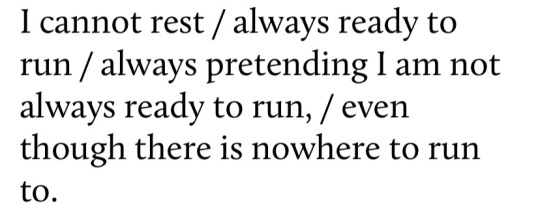


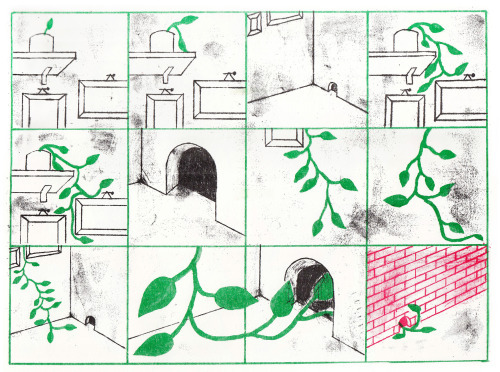


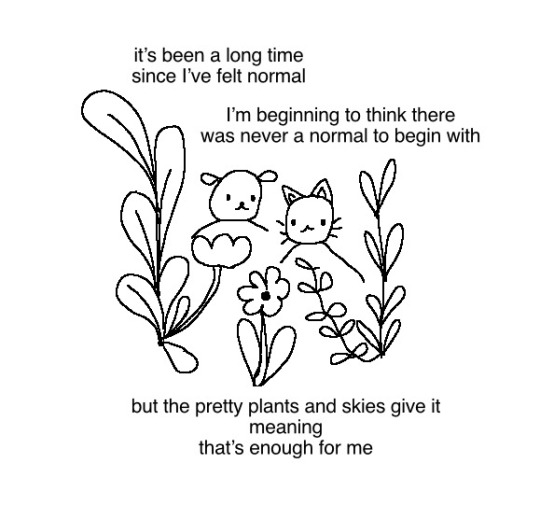
Alison Kronstadt, Bred In Captivity / Icarus, 1970 - ADGER COWANS / Natalie Diaz, from Grief Work/ Escape I, 2018 by Rumi Zsófi / Franz Wright, from God's Silence; "East Boston, 1996" / :> from @mm-mina / from @averyluckyclover post found here.
#moving on#growing#parallels#nature#web weaving#webweaving#adger cowans#natalie diaz#Alison Kronstadt#rumi zsófi#Franz Wright#mm-mina#averyluckyclover
488 notes
·
View notes
Text
Elolvasott könyvek - 2023
megjegyzések a végén
Regény/próza:
Fejes Endre: Szerelemről bolond éjszakán
Brian W. Aldiss: Szürkeszakáll
Ghyczy Csongor: Egy könyv lapjai
Jacek Dukaj: Zuzanna és a világmindenség
Robert M. Pirsig: A zen meg a motorkerékpár ápolás művészete
Kemény Zsigmond: A rajongók
Cserna-Szabó András: Zerkó - Attila törpéje
Aradi Péter: A csend, amire vágytál
Visky András: Kitelepítés
Mati Unt: Őszi kavargás
Tudományos/szakkönyv:
Frantisek Drtikol: Eyes wide open
Tóth Klára: Elem Klimov
Philip Matyszak: Antik Róma napi öt denariusból
Képregény:
Hill/Rodriguez: Locke&Key 1-3
Inio Asano: Goodnight Punpun 1-2-3
Sinonimo/Pásztor/Várai: 1241 - Farkasnak foga között
Mervorius-Brazil: Hosszú az út hazáig
Ghyczy Csongor: Salem Budapest - eredet
Joonas Sildre: Két hang között
Q5 - KépregényÚjság
Hudra-Oravecz: Mi a film?
Lamm Lenke: Itt hagytad nekem a zajt
Hollerbach Emil: Amit a falakról tudni kell 1-2
Érsek Laura: Hogyan lőtte le a dédim a hajóskapitány szeretőjét, és más történetek
Graphic Narratives From Lebanon’s 2019 Popular Uprisings (edited by: Lina Ghaibeh)
Marjai Petra Lilla: No One Can Be Here With You
Kati Akraio: Kitchen Towel Comics
Poór Dorottya: Bébi (igaz történetek 1# by Hurrikán Press)
Mihály Gréta: Kín (igaz történetek 2# by Hurrikán Press)
Ophélie Paris: Snail Tale (igaz történetek 3# by Hurrikán Press)
Janek Koza: Erotic Confessions
Thomas Wellman: Pimo&Rex
Vaughan/Chiang: Újságoslányok 1-4
Leopold Maurer, Regina Hofer: Rovarok
Yoshiharu Tsuge: The Man Without Talent
Zerocalcare: Az óriástatu jóslata
Koska Zoltán: Lyolyabi és Rizmiráng 1-2
Matz/Jacamon: Killer 1. kötet (1-2.rész)
Ghyczy Csongor: Salem Budapest - Terrárium
G.L.O.M.A.: Feine - Hagyjatok aludni 1-2
Anamarija Kvas: We Drift Apart Where We Get The Closest
Benczédi Anna: Broken Days
Benczédi Anna:What’s That on Your Arm?
Szép Eszter: Weekdays
Rumi Zsófi: I could kill for a pimple
Zinek:
Zina 7#
Marjai Petra Lilla: A Political Picturebook
Untold Stories No.2.
Helena Klakocar: Revolt
Lamm Lenke: I’m not ideal
Az idei év nem pont úgy alakult olvasás szempontjából, ahogy terveztem. Az év első pár hónapjában hagytam magam megvezetni egy nagyon hosszú darabbal, ami végül annyira feldühített, hogy a felénél a sarokba dobtam. Ugyanakkor azt hiszem elég idős lettem már ahhoz, hogy ne vesztegessem feleslegesen az időmet az engem nem érdeklő művekre. Nagyon sok könyv hagyta el idén a könyvtáramat mivel egyáltalán nem voltak érdekesek. (Sajnos vagy nem sajnos közel ugyanannyi könyv lépett be, így nem csökkent az állomány, bármennyire is törekedtem rá. 😅)
Voltak azonban könyvek, amik bár nem voltak hosszúak, mégis alaposan megizzasztottak. Szerencsére ezek mind egytől egyig megérték a belefektetett energiát. Pirsig, Kemény és Visky írásai nem csupán élményt nyújtottak, de változtattak a világlátásomon is.
A képregények között nagyon sok a rövid mű és szerencsére egyre több a magyar. Ráadásul ezek mind fontos társadalmi/pszichológiai témákkal foglalkoznak, ami fontos előrelépés a képregényes közegben.
Szakkönyvből/tudományos munkából jóval többet kezdtem el, de ezeket rendszerint félbehagyom, mivel nem mozgatják meg az agyamat. Ezt a párat, amivel végeztem, viszont érdemesnek találtam kiemelni, hogy ne vesszenek el a többi között.
A jövőben a listában a zinek is végre a helyükre kerülnek.
Végül pedig egy kis vallomás: idén azért sem haladtam olyan jól az olvasással, mert sok év után idén újra elkezdtem játszani. Először butaságnak tartottam, de rá kellett jönnöm, hogy olyan reflexeket és kognitív dolgokat mozgat meg bennem, amelyeket nem nagyon használtam már egy ideje. Úgy hogy a számítógépes játékok is maradnak, és mivel másból már nem tudnak, így az olvasásból fognak időt elvenni. De ezt egyáltalán nem bánom. 🙂
3 notes
·
View notes
Text
Plastic words
"On vous laissera vivre et parler, à condition de vous boucher toute issue."
"You will be allowed to live and speak, but only after every outlet has been obstructed."
—Gilles Deleuze and Félix Guattari, Mille plateaux (A Thousand Plateaus)

Escape I (2018) by Rumi Zsófi
We are allowed to speak with plastic words.
This idea, "plastic words" or "plastic language," came to me after hearing the French expression "langue de bois" ("wooden language"). As a sort of oxymoron that contrasts the fluidity of language with the rigidity of wood, it describes an enunciation that is evasive of the issue or question at hand, whether through vagueness, distraction, abstraction, or the like. This may bring to mind any public speech from VP Kamala Harris (here's an example where she talks about technology and collective "engagement"). It could also involve the "academic" writing of ambitious, upper-class "intellectuals" such as Judith Butler who are trying to ride the final waves of identity politics (take this confused Butlerian article where she attacks the attackers of 'gender' in a contradictory, almost self-defeating way—"Battle not with monsters, lest ye become a monster," said Nietzsche). Such language is "wooden" in the sense that it painfully highlights the almost robotic stiffness of words, which, when used by a human being, should create intimacy or meaning, convince, inform, or rabble-rouse. Whatever the reason may be, language changes something. It doesn't just sit there. And yet the too-common language of today is so palpably alienating that one cannot help but notice how hardened it is. In being as rigid as a tree, such words harden (make harder) not just meaning, but community, truth, humanity.
Now, while the idea of "wooden language" is fine and good and useful, I find "plastic language" to be a much more seductive idea. I use "plastic" here pejoratively. In our global, neoliberal economic system in which every person is convinced to secure (or rather, is cornered into securing) their economic stability through "flexibility" (or, in other words, "plasticity") and where the onus is on the worker to maintain the illusory "work-life balance," being "plastic" is remunerated very handsomely. It's just that money comes at a price. You may have some extra cash, but within you is no longer a soul, but instead a growing mass of microplastics coursing through your veins.
A quick Google search revealed that a German linguist had already beaten me to the idea. Uwe Pörksen published a book called Plastic Words: The Tyranny of Modular Language in the 80s (translated into English in the 90s). He uses the word "plastic" to describe corporate- or government-bound terms like "progress," "development," or "strategy" which are completely malleable in terms of their meaning and thus can be used as a vessel (voire a Trojan horse) for whatever the speaker's agenda may be. These words have essentially no meaning on their own; they are plastic bags waiting to be filled, yet also waiting to rip once something too heavy is placed inside. Pörksen had almost named the book Lego Words, to capture the sense that these "words" are fabricated in such a way as to fit together nicely, but only with each other.
At my current job, the lingo of "DEIB" ("diversity," "equity," "inclusion," "belonging"—a murder of words borrowed from the business world) and "engagement" are abound, as they are in many educational institutions. These words constitute the Lego building blocks with which one is allowed to construct language. We are not allowed to play with anything that is incompatible with these blocks; I'd have to go play with other kids for that (who have much less leverage and probably couldn't afford to help me eat and pay rent). This is to make no value judgment of any actual meaning of these words. I believe in these ideas in an abstract sense, but the way that they circulate today is so perverted that I want to do nothing but distance myself from them and their current mainstream function.
It is beyond disheartening to feel myself and those around me to be wrapped in plastic (imagine a saran wrap mummy). Consider Simone Weil's point on communication: "Two prisoners whose cells adjoin communicate with each other by knocking on the wall. The wall is the thing which separates them but is also their means of communication. It is the same with us and God. Every separation is a link." (Gravity and Grace). This prison cell wall, however thick and rough it may be, still lends itself to be a vessel for human contact because it has structure. It is not malleable. It has a place, and it also has limitations. It can be moved and destroyed, but not easily, not without tools and concerted effort. Plastic cannot claim to be the same. In its saran wrap form, plastic allows us to be too close, too connected, too free; this can only mean that we are in fact none of these things. Instead, we're corpses, mummified and embalmed by plastic words, and by words that (are forced to) come out of our own mouths, nonetheless. Words that I use are becoming less and less mine. How can I talk about or realize what feels like true "belonging" or "diversity" to me without bringing to mind all of the hackneyed, commodified iterations of either one of those words? "Belonging" now means everything and nothing at once. What words remain meaningful that have yet to be colonized? Instead of planting flags and enslaving peoples like we used to do, now we hollow out, plasticize, render meaningless and unalive. All of this just so that we can talk “correctly” and accumulate capital in doing so. Whose permission are we waiting for to speak? What do we support by "subverting"? And what do we subvert by supporting?
0 notes
Photo

ITT LETÖLTHETED
Rumi Zsófi illusztrációja
https://www.facebook.com/szintisztastresszoldo
1 note
·
View note
Photo
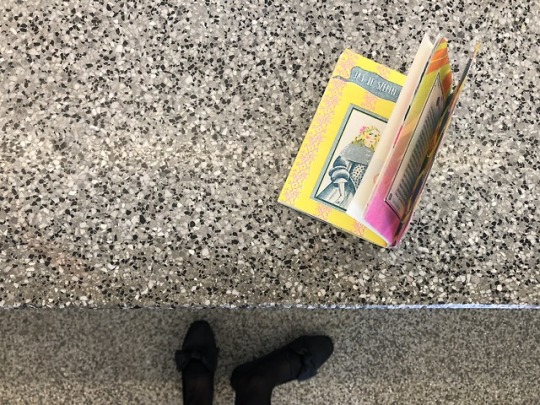
281
ZINA | Petra Lilla Marjai, Zsuzsanna Kreif, Zsófi Rumi, Luca Tóth, Julcsi Lerch, Maja Szakadát, Kata Lovrity, Júlia Farkas, Borbála Tompa | 2017
Booklet, saturated with colourful figures and various mise-en-scènes, chronicles the uncomfortable and at times agonizing situations women often face in everyday life. It’s the fourth edition of the ZINA series, a magazine established in 2016 by girls from Budapest. The zine was printed at Hurrikan Press.
0 notes
Photo
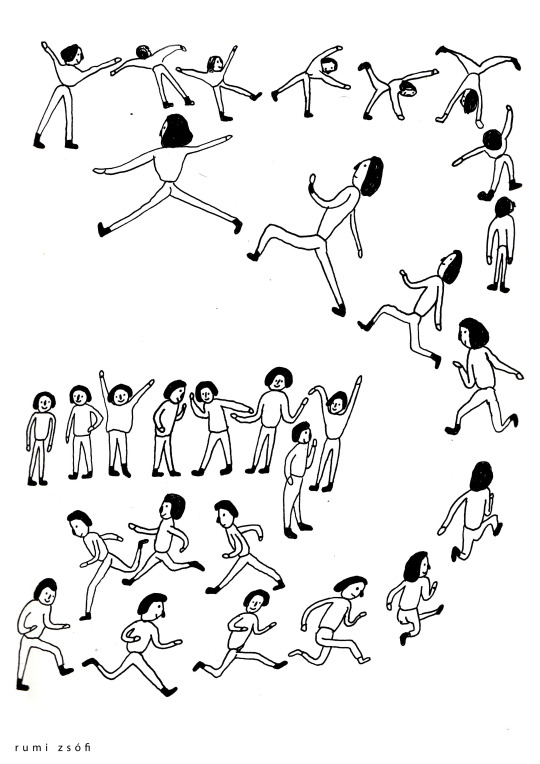
ITT LETÖLTHETED
Rumi Zsófi illusztrációja
https://www.facebook.com/szintisztastresszoldo
1 note
·
View note
Photo

ITT LETÖLTHETED
Rumi Zsófi illusztációja
https://www.facebook.com/szintisztastresszoldo
0 notes
Photo
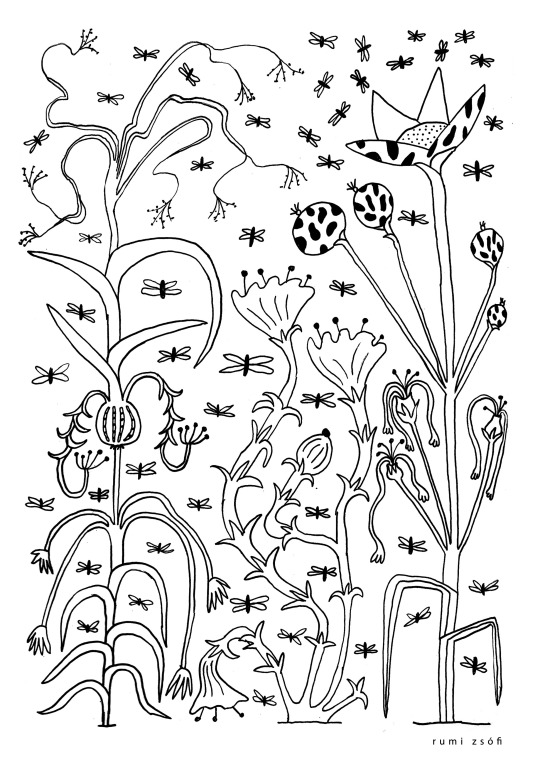
ITT LETÖLTHETED
Rumi Zsófi illusztrációja
https://www.facebook.com/szintisztastresszoldo
0 notes
Photo


zene országot, zoknit vagy férjet elhagyóknak:
EL,LEFT
Easy EP
Wannabe Records, 2014
#wannabe records#rumi zsófi#újrahasznos#EP#EL LEFT#imaginary record#record#ráadásul komplementer csak neked Dorcy
24 notes
·
View notes

